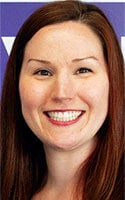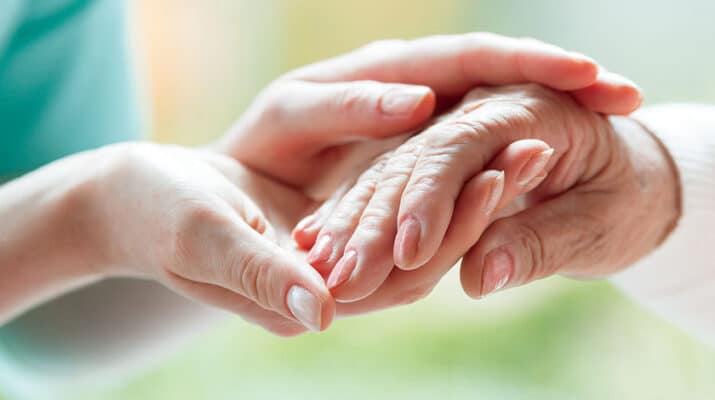If Alzheimer’s or dementia touches your life
By Barbara Pierce

If Alzheimer’s or dementia touches your life, the Alzheimer’s Association of Central New York is there for you.
“We’re still here for you. COVID-19 has impacted us in so many ways. But we’re still working; working differently, but we’re here,” said Kristen Campbell, director of programs and services, Alzheimer’s Association, Central New York Chapter.
Dementia is the term for a group of symptoms that impact memory, impair thinking, cause loss of reasoning and loss of communication abilities. Alzheimer’s is the most common cause of dementia.
Dementia is the term for a group of symptoms: memory loss, impaired thinking, and loss of reasoning. There are few things that scare me more than getting dementia. It’s a terrible disease.
Being in the life of a person with Alzheimer’s or other dementia is a life-impacting experience. It’s tough for everyone involved, especially the caregiver. It’s a long, stressful, and intensely emotional journey. And you’re going through grief, watching the person you love slip away. As he/she gradually deteriorates and starts to lose abilities, you are simultaneously caring for them and battling your own sadness about losing the person you loved.
The Alzheimer’s Association of Central New York has a wide variety of ways they help anyone whose life is impacted by Alzheimer’s or other dementia, including a 24-hour helpline, individual consultations, support groups, and education.
“We’re continuing to offer all of our services through the pandemic,” said Campbell. “We’re connecting with people by phone and webinars.”
24-hour helpline
“The service that is most important to people is our 24-hour helpline,” she added. “It’s often a gateway to our other services — the way people get connected us.”
“We’re here for free, around-the-clock help at 800-272-3900; we’re available in any crisis.”
“Anyone can call; the person doesn’t have to have a diagnosis,” she continued. “We often get calls from people who want guidance so they can reduce their risk. Also from people who see the warning signs and are concerned about themselves or someone else.”
Care consultations
Care consultations assist individuals with dementia and their families solve immediate problems and plan for the future. These meetings include assessing needs and developing plans.
“We don’t teach or tell you what to do, but coach you and your family to find solutions. And it’s free,” said Campbell.
“My parents both had Alzheimer’s. I can’t imagine how I could have gotten through it without the Alzheimer’s Association,” said Susan Madigan of Naples, Florida.
Education
The Alzheimer’s Association offers free online education programs, on topics including the signs of Alzheimer’s disease, diagnosis, communication, living with Alzheimer’s and caregiving techniques. Programs are delivered through an easy-to-use online system.
“We help people prepare, help them learn what to expect,” Campbell said. The more you learn about this disease and how it will progress over the years, the better you’ll be able to prepare for future challenges, reduce your frustration, and have reasonable expectations.
Lisa Whitby of Port Charlotte, Florida has been dealing with her husband’s Alzheimer’s for several years, with the help of her local Alzheimer’s Association.
“The most helpful thing to me was learning what I could expect. And I learned how to handle what might come up. They gave me the book ‘Coach Broyles’ Playbook for Alzheimer’s Caregivers,’ and it’s so valuable.”
Support groups
Many caregivers find support groups immensely helpful, allowing caregivers to vent in a confidential environment to people who understand what one another is going through. Participants share resources, share challenges and what works, offer support when facing a difficult time.
Respite care:
Alzheimer’s and dementia caregivers can receive respite funds, if they meet eligibility requirements of the program.
Online community:
ALZConnected® is a free online community for anyone affected by Alzheimer’s or another dementia. Individuals living with Alzheimer’s, caregivers, family members and friends can ask questions, get advice and find support.

